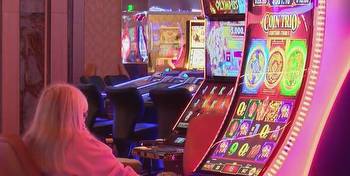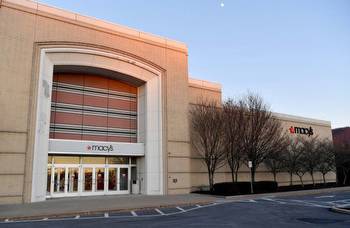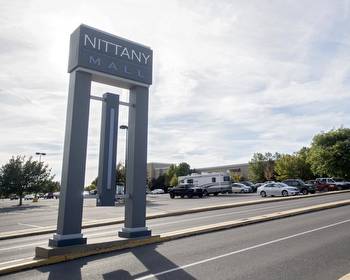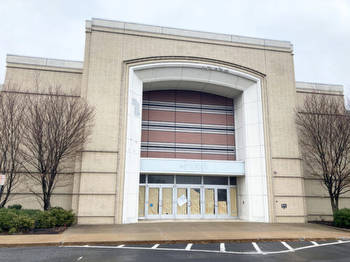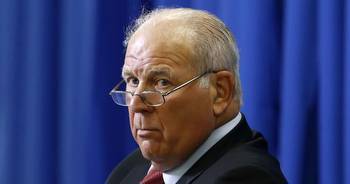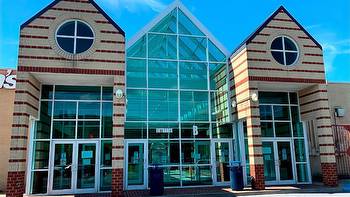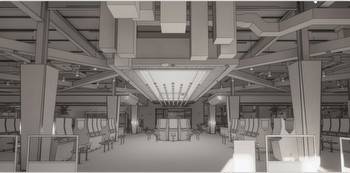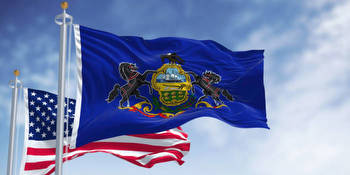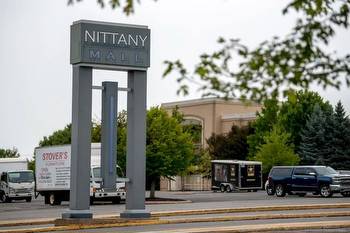Decision to Approve License for Nittany Mall Casino Appealed to Pa. Supreme Court
The Pennsylvania Gaming Control Board may have approved the license for a planned mini-casino in Centre County last month, but the process is far from over.
Stadium Casino LLC, which operates Live! Casino in Philadelphia and Pittsburgh, and which was the losing bidder at a 2020 auction to apply for the state’s fifth category 4 casino license, filed a petition for review on Thursday asking the state Supreme Court to vacate the board’s decision to award the license to SC Gaming OpCo, the developer of the project led by Ira Lubert that plans to open the casino in the former Macy’s property at the Nittany Mall.
Citing allegations about ownership, the 108-page appeal challenges the board’s statutory authority to have even considered the application, and claims Stadium, a subsidiary of the Baltimore-based Cordish Companies, was denied due process as an intervenor in the licensing hearing.
The license cannot be issued until all appeals are resolved. To date, no casino license decision in Pennsylvania has been overturned on appeal.
Lubert won the September 2020 auction to apply for the casino license with a bid of $10 million, which he and the PGCB have said he paid from his personal funds. State law for Category 4 casinos requires bidders to have ownership in existing casinos in Pennsylvania, and Lubert was eligible because of his ownership interest in Rivers Casino Pittsburgh.
He then formed SC Gaming to apply for the license and partnered with Bally’s and others to develop the project. Lubert contends he is the sole owner of SC Gaming.
Stadium attorney Mark Aronchick, however, wrote that Lubert appears to have partnered with investors who would have been ineligible fund the bid and to develop the project, and in exchange have received some form of ownership interest.
“If the winning bidder does not himself pay the winning bid, as required by … the Gaming Act, or apply for the license… the Board does not have the authority to even consider the application, let alone grant a license,” Aronchick wrote. “Instead, the Board is required to either ‘award the right to . . . apply for the Category 4 slot machine license’ to ‘the second highest bidder,’… or, at a minimum, ‘conduct another auction.’
“In this case, if Lubert parceled out interests in his various entities and the gaming project, as the facts available to Stadium indicate, Lubert himself did not bid or apply for the license; rather, he created an investment group of individuals or entities that neither are licensed casinos in Pennsylvania nor own an interest in an existing licensee and who, therefore, were not statutorily authorized to bid or apply.”
Attorneys from the PGCB’s Office of Enforcement Counsel said at the licensing hearing that its Bureau of Investigations and Enforcement and Financial Investigations Unit conducted “exhaustive and detailed” background investigations and found no issues. PGCB’s chief enforcement counsel, Cyrus Pitre, said the board’s statutory authority is clear.
The board’s formal adjudication of the license decision noted that “SC Gaming has represented that a change in control of SC Gaming involving multiple investors – one of which is Bally’s, the project’s developer and manager – will be initiated shortly after the award of the Category 4 slot machine license.” During the licensing hearing, Lubert’s attorneys pointed out that any transfer of ownership would require PGCB approval and that state law does not prohibit having other financial backers.
While Stadium was granted intervention status and permitted to offer a presentation at the licensing hearing, Aronchick wrote that the PGCB violated due process when it denied the company’s requests for discovery, to question witnesses and to supplement the record with an expert’s report.
Stadium has separately filed a lawsuit on similar grounds against Lubert and the PGCB in Commonwealth Court, which earlier this month denied preliminary objections by the PGCB and Lubert. The court found that Stadium’s allegation about ownership is “more than a bare unsupported assertion, [and] is based on various circumstantial evidence outlined in the Petition.”
If it does move forward, the approximately $130 million casino project would be constructed in the 94,000-square-foot anchor spot that was formerly home to Macy’s at the College Township mall.
It would be a 24/7 operation that would have 750 slot machines, 30 table games and sports betting along with a sports-themed restaurant and bar with an entertainment stage and a multi-outlet quick-serve food court.
The casino would have two exterior public entrances and one from inside the mall and would only be open to individuals age 21 and older, including for the restaurant and food court. ID scanning will be employed at each entrance.
Supporters of the casino have argued it will provide a new entertainment venue to revitalize the College Township mall and an economic boost that will create millions in tax revenue. Host municipalities and counties each receive 2% of a casino’s slot machine revenue and 1% of table game revenues. College Township is projected to receive $1.6 million in tax revenue annually, which is about 10% of its current budget.
“I believe the category 4 casino I intend to construct at the Nittany Mall will reinvigorate the property and draw new businesses to the mall itself and the surrounding area,” Lubert said, comparing it to his previous success as one of the developers of Valley Forge Casino Resort. “This, in turn, will create jobs and help the State College region’s economy grow forward.”
Opponents have been vocal about their worries of increased crime, negative effects on other businesses and gambling addiction, written hundreds of letters in opposition and unsuccessfully urged College Township Council and Penn State leaders to object to the licensure approval, citing among their reasons the university’s close proximity to the mall — about 3 miles — and the susceptibility of college-aged individuals to gambling addiction. About 3,300 people signed a hard copy petition and online petition against the casino.
After the licensing hearing, members of the community group Say No Casino said they felt the PGCB simply ignored public comment and correspondence.
“They ignored the comments that were submitted before then, and they refused to allow public comment at [the licensing hearing],” Say No Casino member Andrew Shaffer wrote. “[The] hearing was very much a case of two wolves and a lamb taking a vote on what to eat for dinner.”








